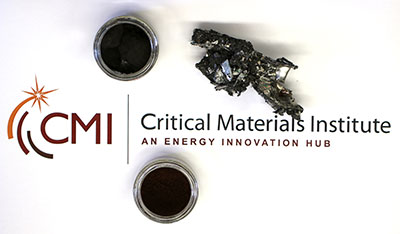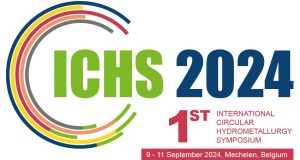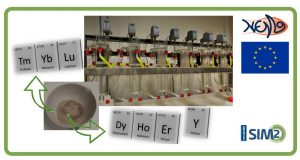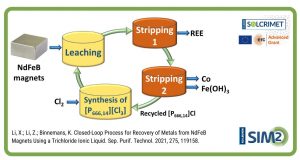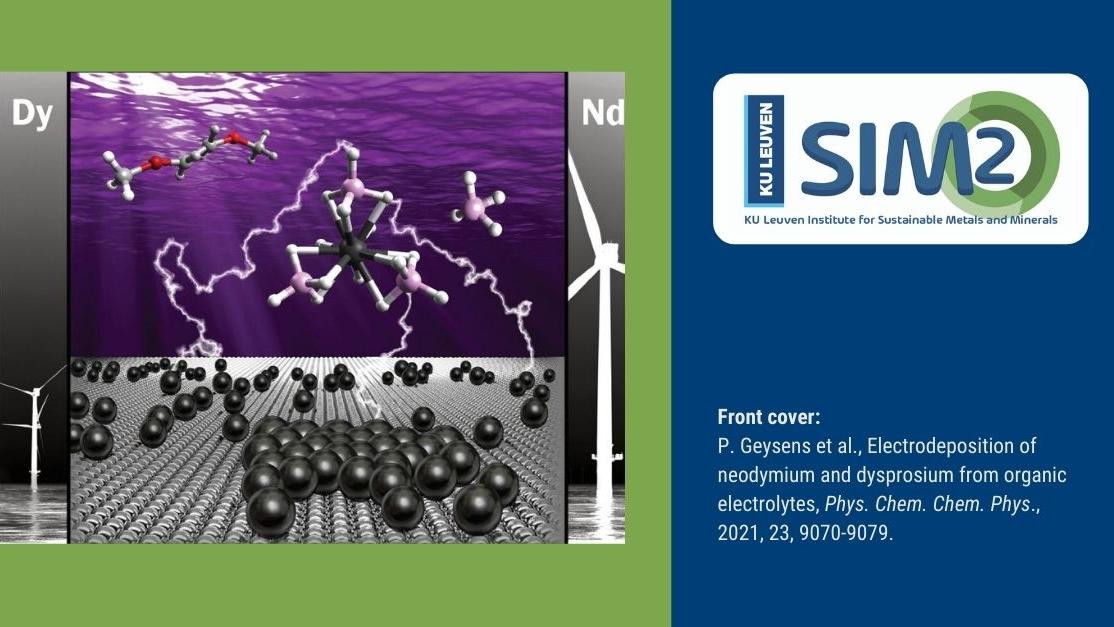The Critical Materials Institute, a U.S. Department of Energy Innovation Hub led by the Ames Laboratory, has announced that one of its industry associates, Momentum Technologies, Inc., has entered into a letter of intent with Wistron GreenTech Corporation, Texas, pertaining to the future collaboration in the field of recovering rare-earth elements from electronic waste. Wistron GreenTech is the green recycling arm of Wistron Corporation, which designs and manufactures technology products for global distribution, and has an annual revenue exceeding $20 billion.
Rare-earth elements are in high demand due to their special uses in consumer electronics, hybrid/electric vehicles, wind turbines, hard disk drives, jet engines, missile guidance systems, and beyond. Despite their vital role, at least 99 percent of rare-earths are thrown away once the products containing them reach the end of their life due to recycling technologies that are inefficient, costly and environmentally hazardous.
“Since the invention of the smart phone, electronic waste has been growing at a rapid rate. There is now a large stockpile of material to collect rare-earths from. Using our proprietary process, we can collect these critical materials for reuse in a way that is much more efficient compared to mining. This way we can meet the rocketing demand for rare-earths in a sustainable way while also diversifying supply for manufacturers,” said Preston Bryant, CEO of Momentum.
This approach has been attempted before, but Momentum’s technology, which was developed by the U.S. Department of Energy at Oak Ridge National Laboratory and Idaho National Laboratory in project work for the Critical Materials Institute, is significantly more efficient and lower cost than traditional processes, requiring only a single stage for processing. The MSX technology recovers highly pure rare-earth oxides (>99.8%) from a wide range of magnetic waste feedstocks including MRI machines, Hard Disk Drives, cell phones, magnet manufacturing scrap, and electric motors.
The announcement comes on the heels of President Donald Trump signing an executive order on Dec. 20, 2017, that calls for an end to U.S. reliance on foreign sources of critical materials.
The Critical Materials Institute is a Department of Energy Innovation Hub led by the U.S. Department of Energy’s Ames Laboratory and supported by DOE’s Office of Energy Efficiency and Renewable Energy’s Advanced Manufacturing Office, which supports early-stage applied research and development of new materials, information, and processes that improve American manufacturing’s energy efficiency, as well as platform technologies for manufacturing clean energy products. CMI seeks ways to eliminate and reduce reliance on rare-earth metals and other materials critical to the success of clean energy technologies.
Ames Laboratory is a U.S. Department of Energy Office of Science national laboratory operated by Iowa State University. Ames Laboratory creates innovative materials, technologies and energy solutions. We use our expertise, unique capabilities and interdisciplinary collaborations to solve global problems.
Ames Laboratory is supported by the Office of Science of the U.S. Department of Energy. The Office of Science is the single largest supporter of basic research in the physical sciences in the United States, and is working to address some of the most pressing challenges of our time. For more information, please visit science.energy.gov.

 European Training Network for the Design and Recycling of Rare-Earth Permanent Magnet Motors and Generators in Hybrid and Full Electric Vehicles (DEMETER)
European Training Network for the Design and Recycling of Rare-Earth Permanent Magnet Motors and Generators in Hybrid and Full Electric Vehicles (DEMETER)